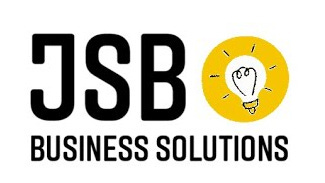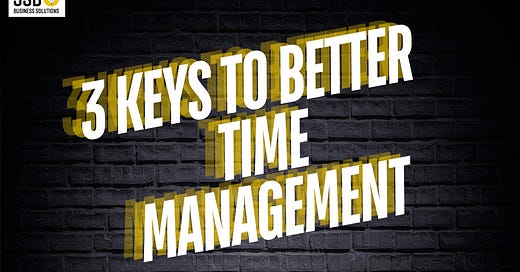Three Questions to Help You Better Manage Your Time
You can’t negotiate with time. You can’t manage time, bribe, arm wrestle, flirt with, threaten, or coerce time. Time doesn’t care.
Here’s the thing: There is no such thing as time management, but I had to put it in the title to get you here.
You can’t negotiate with time. You can’t manage time, bribe, arm wrestle, flirt with, threaten, or coerce time. Time doesn’t care. We all have the same amount of time, but we each derive a different amount of value and results from the time we have.
The value and results we extract from time depends on:
#1 - Buying vs. Selling Time
There are those of us who buy other people’s time wholesale, and sell our own time retail (An article for another time)
#2 - Managing Priorities
Better managing what we prioritize with the time that we have will lead to better results. In other words, we must know how to identify the key performance indicators that will drive value and results in our lives. Then, we must prioritize using our time to execute activities that advance those key performance indicators.
The greatest challenge for most entrepreneurs is determining what to focus on.
Urgency: Some things are urgent and must be addressed, but do not really improve the trajectory of our lives. Like paying a utility bill, responding to emails, and addressing an angry client.
Importance: Other items are important even if they do not require immediate urgent attention. Once completed they will produce dramatic improvements in our lives or businesses. Like setting business processes that will save you time in the future, or starting a monetized blog as a new income stream.
Like most worthwhile endeavors, priority management is a skilled trade. It’s not something you can master in a day, but if you never pursue mastery you may look up in 2 or 5 years from now and find yourself involved in projects, working a job, building a business, or living a life that others have created for you - rather than you being the creator yourself.
What to Do Next?
Here are a couple of questions to help you get the ball rolling on priority management:
What do you value most?
Be honest with yourself, or this question will prove useless. What is truly driving you? What are your motivations?
Is it being a good parent? Are you compelled to pursue a particular cause, like helping orphaned children? Do you fear financial or food security, so you work tirelessly to increase your net worth? Do you value country and service? Being an author? Or is it being upwardly mobile, or commanding respect? Do you think, eat, and breathe being a real estate investor?
Define your motivations and drivers, and use them as an internal compass to point you in the direction of the granular tasks and investments you should be spending time and resources on. Ask yourself whether or not the roles you currently serve - author, mother, CFO, retail salesperson, investment advisor, volunteer, etc. - are in alignment with your core values.
What are the top 3 things you will accomplish personally or professionally to make the biggest difference in your life over the next 365 days?
Goal-setting can be a clarifying and gratifying exercise, but absent a goal-achieving plan it becomes a broken promise. Write down the top 3 (and only 3!) goals that would make the biggest difference in your life this year. The year milestone helps us come to grips with our tendency to underestimate what we can get done over the course of a year, and overestimate what we can get done in a month.
Then, think about what you will do a) today, b) this week, and c) this month to point yourself in the direction of achieving those goals. Remember that without a plan to achieve those goals, you are likely to let yourself down and fail to achieve the goals you believe are most important to your flourishing.
What are the top 3 things you will accomplish that will make today a masterpiece?
You eat an elephant one bite at a time. Yesterday is done. Tomorrow doesn’t exist yet. Today, there are a million different distractions, social media posts, emails, texts, people's expectations, and agendas vying for your time and attention.
Think about time like a rock or a piece of wood. Then think about our focus like a chisel. Time can pass meaninglessly if we do not pick up the chisel and pay attention to carving the rock or wood. However, apply some attention and focus to it and beautiful ornaments, useful tools, and fulfilling impacts can be carved out.
The world around us wasn’t built by the exceptional. It was built by everyday people who were willing to do exceptional things. Go build something.
Want to learn more about me? Visit my online profile here. Interested in collaborating, gain more insight by clicking here.

Thanks for reading The Grow Givers Project! Subscribe for free to receive new posts and support my work. And remember, sharing is caring.




